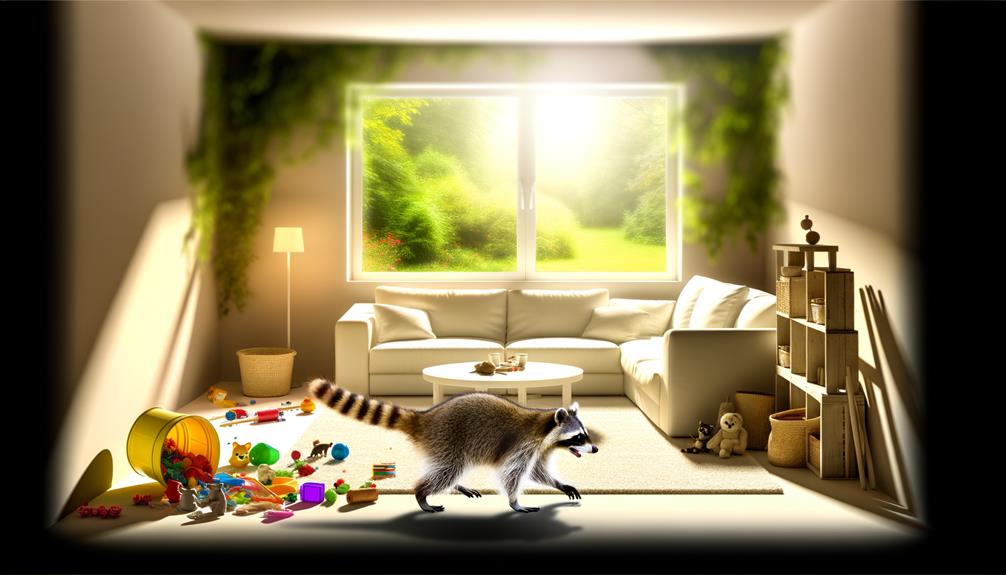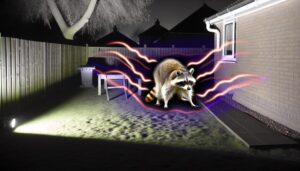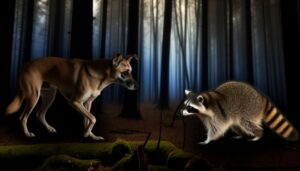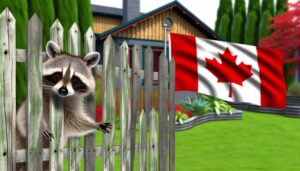How You Can Get a Pet Raccoon Legally: Step-by-Step Guide
Owning a pet raccoon requires adherence to legal regulations, which differ by jurisdiction. Permits may be necessary, and failure to comply can result in severe penalties.
Raccoons are nocturnal, solitary, and possess strong territorial instincts, requiring secure and spacious enclosures built from durable materials. Their diet should be diverse, including high-quality commercial foods and fresh produce, with lean meats providing protein.
Regular veterinary check-ups and vaccinations are essential due to the risk of zoonotic diseases such as rabies. Thorough care and careful management are vital for those considering this unique pet.
Learn more about the specifics of raccoon care and legalities.

Key Takeaways
- Legal status of owning a raccoon varies by jurisdiction; check local regulations and permits.
- Raccoons require secure, spacious enclosures with enrichment activities to thrive.
- Their diet should consist of high-quality commercial foods, fresh produce, lean meats, and eggs.
- Regular veterinary care and vaccinations are essential to maintain their health.
- Raccoons can be aggressive and possess strong territorial instincts, requiring experienced handling.
Legal Considerations
Before acquiring a pet raccoon, it is crucial to thoroughly understand the legal regulations and restrictions that govern the ownership of exotic animals in your jurisdiction.
Legal frameworks vary greatly across regions, with some areas imposing strict bans while others require specific permits. Regulatory authorities such as the Department of Fish and Wildlife or local animal control agencies often outline these rules.
Violating these regulations can result in hefty fines, confiscation of the animal, and potential legal action. It is also important to take into account federal laws, such as the Endangered Species Act, which may impact raccoon ownership.
Engaging in detailed research and consulting legal professionals ensures compliance and promotes the welfare of both the animal and the community.
Raccoon Behavior
Understanding raccoon behavior is essential for potential owners to ensure proper care and management of these intelligent and often unpredictable animals. Raccoons (Procyon lotor) display a high degree of curiosity and dexterity, often engaging in problem-solving activities. Their nocturnal nature means they are most active during twilight and nighttime hours, which can conflict with human schedules.
Socially, raccoons are generally solitary, except for mothers with young. They exhibit strong territorial instincts and can become aggressive if they feel threatened. Moreover, raccoons possess a highly developed sense of touch, utilizing their front paws to investigate their surroundings meticulously.
Recognizing these behavioral traits is vital for fostering a safe and enriching environment for both the raccoon and the caregiver.
Housing Requirements
Adequate housing for a pet raccoon necessitates a secure, spacious enclosure that accommodates their climbing and foraging behaviors. The enclosure should be constructed with durable materials, such as galvanized steel, to prevent escape and resist wear.
Minimum dimensions of 8x8x8 feet are recommended to allow for physical activity. Incorporating vertical space with shelves, branches, and climbing structures is essential, as raccoons exhibit arboreal tendencies.
Environmental enrichment, including puzzle feeders and hidden treats, can stimulate their cognitive functions and alleviate boredom. Additionally, a sheltered area within the enclosure is vital for protection against adverse weather conditions.
Ensuring these elements promotes the well-being and overall health of a pet raccoon, aligning with humane care standards.
Dietary Needs
What constitutes a balanced diet for a pet raccoon involves understanding their omnivorous nature and nutritional requirements. Raccoons consume a varied diet in the wild, including fruits, vegetables, nuts, insects, and small vertebrates. For domesticated raccoons, a diet comprising high-quality commercial foods designed for omnivores, supplemented with fresh produce, is recommended.
Protein sources such as lean meats and eggs should be included to meet their metabolic demands. Avoid feeding them processed human foods, as these can lead to obesity and nutritional imbalances. Freshwater should be available at all times.
Regular dietary assessments by a veterinarian can ensure that nutritional needs are met, promoting peak health and longevity for your pet raccoon.
Health and Safety
Ensuring the health and safety of a pet raccoon requires a thorough approach that includes regular veterinary check-ups, vaccinations, and a secure living environment. Raccoons are susceptible to various zoonotic diseases, such as rabies and leptospirosis, making vaccinations imperative.
A secure habitat minimizes the risk of injury and escape, which can endanger both the raccoon and the community. Regular health assessments by a veterinarian specialized in exotic animals can detect early signs of illness, ensuring timely intervention.
Additionally, raccoons require mental stimulation to prevent behavioral issues; environmental enrichment strategies are essential in this regard. Adherence to these health and safety protocols not only safeguards the raccoon but also protects human health, reinforcing a harmonious coexistence.
Conclusion
The acquisition of a pet raccoon necessitates a thorough examination of legal considerations, behavioral traits, housing requirements, dietary needs, and health and safety concerns.
Evidence suggests that raccoons, despite their intelligence and adaptability, present significant challenges in domestication.
Their complex dietary needs and potential for transmitting diseases further complicate ownership.
Therefore, while feasible under specific conditions, the practicality and ethical considerations of keeping raccoons as pets warrant careful scrutiny and adherence to regulatory guidelines.






